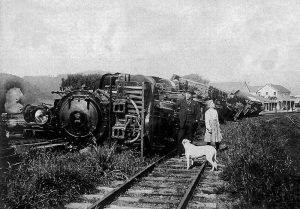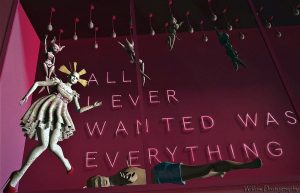Business
You know the drill : writing requires you to put your ass in the chair and write… alone. We’ve got our characters, sure, but they aren’t colleagues. The conversations we have with them are really conversations with ourselves. I think this is one of the reasons that writers flock to social media – finally, other people to talk to all day!
Writing can be lonely. I did a (unscientific) survey recently of many writers I know who write full time and that is one of the touchstones they didn’t necessarily think through when they chucked their day jobs. The day, the blank page, these stretch out before you and there is no break room, no people to commiserate with about that terrible boss.
Even though I still work at my day job, it is something I’ve struggled with too. As a result, I’ve been looking for a collaborative project with other writers for years. But short of getting my own television show – I mean written by me, not starring me – I couldn’t make it happen. I tried writing a novel with another writer friend but that didn’t pan out. I did participate in some anthologies, but those were still solo projects. Then I heard about Serial Box (serialbox.com) which is a service that offers serialized novels which are written like TV shows: there is a lead writer, a writer’s room and then the season is written collaboratively. Cool, right?
It was cool and also a challenge. I pitched a show – well many shows, but the one they liked was this one – about Supreme Court clerks. Think Felicity meets the West Wing. I was commissioned to write a ‘bible’ – not religious, just the term they use also from TV, think a detailed outline of the world the book inhabits and the episodes – and based on that they green lit the book. Which means, go time! We gathered a team of writers and ended up with Elyssa Friedland (The Floating Feldmans), Kermit Roosevelt III (an author and former Supreme Court Clerk), Jasmine Guillory (The Wedding Party), Randy Susan Meyers (Waisted) and Shawn Klomparens (Jessica Z.). Three of us were lawyers, including me, and two were not. And we also had a producer.
We met over a long weekend in DC last January. We worked all day on plot and story and character. We took notes on a big easel. We got a behind the scenes visit to the Supreme Court (the coolest!) And then we took photos of everything and went back home. The collaboration continued though, with each of us having to submit an outline to the group for review, and then our episodes too. As the lead writer, it was my job to review everything, pick up continuity and character errors and generally be a pain in all the other writer’s asses.
It was so much fun! Honestly, while we didn’t all see eye to eye – and lawyers can be pushy and abrasive, me included – we produced a fun and engaging story that was better than any of us could have done ourselves. Along the way, we formed lasting friendships and, for me personally, engaged with the US Supreme Court in a way I […]
Read MorePhoto: Voltamax-60363
I was on the phone with author Barbara Taylor Bradford on Tuesday morning. We were just having a check-in to see how things were going in quarantine. I complained about my mornings of remote learning with my five and eight-year-old children. We both agreed that as women who have worked from home for years—she 40 and me 15—not much had changed for us in that respect. But having lived through WWII, she wanted me to know that it would be OK, that things would get better, that I had to have hope. She then commented that she was excited for the end of the day because after she completed a writing chapter of her next book, she would be shopping online for some Maybelline makeup. This was her reward for a chapter complete. This was the bright little ray on her day.
It made me smile.
In my last WRITER UNBOXED article, I discussed the positive movements in the book world since the pandemic. I’ve seen many a book launch since then, and as a publicist, I’ve been part of a few. Despite all the good, I’ll admit, there are days I feel less than hopeful.
With limited distribution, cancelled tours, fewer marketing dollars, media shifts and downsizes, and possibly decreased publisher support, many authors with books launching this spring are facing a challenge.
So I queried nine authors who have recently launched or are about to launch a new book. I wanted to know, as an artist, what or who gives them hope each day? And what gives them hope for your book despite this uncertain time.
I have to say, the power of US, is so very strong.
Richard Fifield, The Small Crimes of Tiffany Templeton, March 10
My second book was launched on March 7th. Three days later, the world shut down, and I had no live audience, no venues. I need an audience. On the computer, the camera creates a distance that cannot be closed. Last year, my mother died of leukemia, and I was holding her hand at the end, just the two of us, my laptop open, because I promised her that I would finish this book. She was my best friend, and in the last six weeks, I needed her. Our relationship was stormy, until I got sober in April of 2005. I did the work to make it better, and that work began with learning how to love selflessly, to find perspective. Fifteen years ago, I began walking the dogs at Animal Control, the worst dogs, the ones considered unadoptable, damaged beyond repair. I could identify with that. They were so grateful to see me, the real me, and it broke my heart that they had no idea they were set to be euthanized. I was spared, by the grace of something bigger than me, stopped from euthanizing myself slowly. I have adopted five of those dogs, learned to grieve without numbing myself, learned to love without the fear of loss. My rescue dogs rescued me, showed me how to love, and how to be loved. In the last six weeks, they remind me I’m fortunate to have published a book, no […]
Read MoreI promised to follow up my last blog post on searching for relevant grants with a post on how to write a killer proposal. Well, here we are, at my next blog post, but also in another world. One with far more questions than answers–not just about writing, but about basic life and the shape of the future. I have had too much time during shelter in place to think how useless, or even callous it would be for me to carry on as planned. Will there even be grants for writers in the future? Shouldn’t I write a post about how to navigate the now, rather than the not so certain future?
I am not a navel-gazing sort, and my only advice on how to get through the current day-to-day is simply do your best, forgive yourself often and fully, and give yourself permission to pursue what you love and want to do as often as you can. And that last piece of advice is what convinced me to carry on as planned. Because ‘permission’ to do what you love is often linked to having the financial means to do so. Perhaps it’s naïve, but I believe that when we reach the other side of this transformation there will still be opportunities worth pursuing that will require proposals and applications. Perhaps not necessarily just for writing fiction. Perhaps for getting a job. Perhaps for landing a contract. Perhaps for applying for school or education.
Whatever future we are reeling towards, knowing how to describe what you want to do convincingly, concisely, and purposely is useful. Even if you only do it as an exercise to clarify your own understanding of your goals. So here is a strategy for writing an awesome proposal, for whatever you want to pursue.
How to Write a Killer Proposal
At different points in my career some very smart, successful people (including scientists, humanities scholars, writers, and even fitness gurus) have given me advice about how to craft a good project proposal. Despite their drastically different career paths, their advice was surprisingly consistent and could essentially be boiled down to one cardinal rule and four basic pieces of information.
The Cardinal Rule: clarity of language is of more value than trying to write to impress, whether with style, wit, language, name-dropping or jargon. (Although if you can be clear and witty at the same time, then by all means do so.) A good proposal is not about how much you say, but about how well formulated what you say is.
The Four Basic Elements of a Good Proposal. Simply tell them:
It’s so good to be back here on Writer Unboxed after a year’s sabbatical hunkering down and focusing solely on my work helping authors build buzz and visibility at BookSavvy PR. I’ve missed being an active part of this wonderful community (though I’ve still been stalking), and have been bursting with thoughts to share from the frontlines of promotion.
Many of those thoughts suddenly feel less relevant, though, as we all stand paralyzed with shock before the Coronavirus crisis. People across the planet are being forced to adjust in ways we never imagined, and the writing community—despite a penchant for solitude that might suggest we’re relatively “safe”—is no exception. On top of losses ranging from jobs and livelihoods to favorite writing spots in coffee shops and libraries, the cancellation of launch events has come as an especially painful blow. Gratitude to Teri for the initiative to support those whose launches are suddenly un-scheduled.
Yes, it’s an immense disappointment. And yes, it is crushing to imagine not having that well-deserved, long-anticipated celebration and the bond of community it brings. This is a huge, painful loss. But if you are also biting your nails about the impact on your book’s success, my advice from the promo trenches here is: breathe. None of this is as gloomy as it might feel. Need convincing? Here is my reasoning, based on many years on the frontlines:
You Can Reschedule – and There’s a Silver Lining
This is quickly becoming the year of cancellations—and resilience. In the spirit of resilience, the show must go on. Take steps now to reschedule your launch. Your local bookstore may be shut at the moment but you can be in touch with the owner. If they are struggling as sadly, many independent bookstores are right now, and don’t know what the future holds, make a backup plan: a library, or somebody’s home. Invite the bookstore staff and owner too. It might help boost their morale.
And in the meantime, take comfort in knowing that postoning your launch event means you can look forward to it for that much longer, can build buzz in the lead-up to it that much longer, and that you have the support of many amazing communities as Allison Hammer mentioned last week here on WU.
It’s Okay if Your Launch Event and Publication Date Don’t Align
Maybe the idea of rescheduling your launch event worries you because you’ve heard that a launch must happen around the time of publication. Don’t let it. Perhaps because traditional publishers prefer to see as much buzz and as many sales as possible around a publication date, there is a huge amount of pressure on authors to do everything in their power to create that initial bang. But trust me: the bang can happen at other times, too. Books have a long shelf life. (Pun intended) I’ve known and worked with dozens of authors who for various reasons don’t hold a launch event or even begin promotion of any sort until months after a publication date at earliest, and their books have gone on to […]
Read MoreFlickr Creative Commons: Sarah Scicluna
Presenting writing workshops has been very much a part of a professional writer’s life for a long time now, and it’s only increasing as an important source of a writer’s income. Indeed, in a time of contracting publishing lists and vanishing advances, for some writers it may be the major source of income. Some are still resistant to the idea of attending workshops, quoting the traditional truism ‘you can’t teach writing,’ but good workshops offer three very important things, especially for aspiring authors: inspiration for new directions, the honing of craft, and the opportunity to connect with like-minded people.
Over many years of giving writing workshops all around the country as well as overseas, I’ve learned ways to successfully tailor workshops for different audiences and age groups. In this post, I want to pass on some tips for both the creation and presentation of workshops.
Creation
Read More
Nearly every professional writer I know has dire things to say about sophomore novels, and for good reason. You don’t have to look very far at both trade and informal reviews to find scathing assessments of this or that writer’s “lackluster sophomore effort” or “disappointing follow up” to their popular debut novel. The second novel can feel doomed before you even write it.
2019 was a special year for me, because it marked the publication of my sophomore novel. More accurately, one of my sophomore novels, because courtesy of the myriad and complicated layers of publishing, I am in the unusual and somewhat unenviable position of having published three debut novels, and three sophomore novels.
My first two novels were self-published under a pen name and, while the first one wasn’t a runaway success, it found its rather obscure niche. Year after year, it continues to sell in modest but reliable numbers. The second one, despite fitting squarely in that obscure niche, doesn’t sell at all and never has.
My next two novels were published by an independent press. The first one did well for a debut novel by an unknown writer from a very small publisher. It got some nice reviews and sold fairly well, all things considered. My second small press book foundered out of the gate. Unread, unreviewed, and generally unloved by readers who liked the book that came before it.
Then in 2016, what was technically my fifth novel was published by a major New York publisher. Because my first two novels under my own name had been with a small press, that first Big 5 book was billed as my “debut” novel. I got a great deal of the attending publicity and hype that comes with a well-received debut. There were times when it felt like publishing had miraculously restored my virginity, or at least made one last valiant effort to present this middle-aged redneck debutante to literary high society.
That third debut succeeded beyond my wildest dreams, but shortly after it made the New York Times bestseller list, I had to get serious about writing my next book. Hopefully my final sophomore novel. It came out last year and has generally been received in true second novel fashion. If first books are like first children, who get elaborate christenings and meticulously curated baby books, then The Reckless Oath We Made is a second child, who got a hurried sprinkling and a My First Year that is full of blank pages and blurry photos. Ah, we wanted to get a picture of the baby’s first steps, but the phone was on the charger.
There’s a common perception that a successful debut will help sell a second novel, but I don’t know any writers who believe that or who have experienced that. Part of the problem is managing expectations, because not every reader is willing to follow a writer to the next thing. I get a surprising (to me) amount of mail asking when I’m going to publish a sequel to All the Ugly and Wonderful Things. The answer is never, but it’s been enlightening to see the degree to which some readers attach to a book and don’t […]
Read MoreImage – iStockphoto: Valery Ambartsumian
‘The Desire To Change Everything’
In an edition of the interview series First Draft: A Dialogue of Writing excerpted at Literary Hub, the Chilean-American author Isabel Allende says to Mitzi Rapkin, “Literature can maybe change minds, but few people read.
Provocations graphic by Liam Walsh
“Few people allow themselves to be influenced or changed by books,” she says. “It takes a book sometimes decades, sometimes centuries, to have an effect, while journalism is very immediate and very powerful. You have minutes of something on TV, and you can create much more impact than a book can do in many, many years.”
Allende–who has more than 23 books to her name, 74 million copies in 40 languages–is speaking, it turns out, not only as the author we know but as a journalist.
When “the great boom of Latin American literature was a bunch of men” early in her career, she says, she felt she was likelier to be a writer in journalism than in literature.
“I found a job in a feminine, very avant-garde magazine,” she says, “that started to deal with feminism early on when it wasn’t an issue in Chile yet. I had found my perfect niche, and that’s how I began writing. I wasn’t thinking that I was giving a voice to women. It was just random energy and the wish—the desire—to change everything, to change the society, the culture, the religion, everything.”
And it might surprise readers to learn now that she sees books as a slow medium, if you will, by comparison to journalism.
One reason this has resonance today, of course, is that there are so many political books going to market, covering the fray from both sides of a lot of aisles, not just from the classic conservative and liberal stances. Penguin Press’ January 21 release of Philip Rucker and Carol Leonnig’s A Very Stable Genius arrived at No. 1 in new releases at Amazon, not just in politics but overall.
And yet that, of course, is a book by journalists. Rucker and Leonnig are at The Washington Post. And just making such books current by the time they’re out is no walk through the park. Authors talk of adding new last chapters and addenda at the last moment to account for the latest complication (or tweet) in a current-affairs context that just won’t stand still.
One of the most prominent examples of the moment in direct and timely political content is a memoir that’s almost writing the political scene rather than vice-versa. Leaks and passage descriptions from the manuscript of the former White House national security adviser John Bolton’s The Room Where It Happened (Simon & Schuster, coming March 17) are driving much of the discussion around the impeachment proceedings, particularly the question of new witnesses rejected by Senate Republicans for the trial.
Nevertheless, I’m not sure I agree with Allende in her assessment of the relative impact–or the relative speed of impact–of journalism over books, even literature.
And that’s my provocation for you today.
‘The Beginning of Terror’
Among Michael Cunningham’s novels, Read More
image by Tiles Unlimited
The usual writing advice tells you that once you find your genre as an author, you should stick with it. Readers might not follow you to the new genre, they say. Readers want to know what to expect, they say.
And writers say: But what if I have a really great idea in a different genre? What if I lose my taste for what I was writing before? What if my agent tells me the market is overcrowded in the genre I’ve been writing and gently suggests I try something different?
Like much writing advice, the advice to stick with a single genre is totally correct except when it isn’t.
There are writers who successfully publish across genres using the same name; there are plenty more who use pseudonyms, openly or secretly, to separate one genre from another. I’m the pseudonymous kind, and over the past year I’ve been working on a book that (I hope) will be my first foray into a very different genre. It’s hard to find the words to express how terrifying and exciting and frustrating and right it feels all at once.
No one can stop you from writing in a new genre but you. If it’s something you want to do, I highly advocate pursuing it. But I’ve also got a few suggestions that can help maximize your chances of success.
Read, read, read in your new genre. Number one, first, absolute. If you want to write in a genre you don’t read, you’re setting yourself up for problems down the road. Don’t write romance if you’ve never read a romance; don’t write sci-fi if you haven’t read any SF since Stranger in a Strange Land. Look at current releases and classics, winners from any industry awards, books that follow the trends and books that buck them. Ask friends who read in the genre for their favorites. Read some bestsellers. Find what the critics love. Invest some serious time in this endeavor. What this will help you do is…
Know the rules. Notice I didn’t say follow the rules; you can probably tell by now I’m not much for always/never advice. But you need to have a sense of what’s typical and what’s not in your new genre so that you can intelligently discuss why you’ve made the choices you have. A few rules are unbreakable — if you write a romance and intend to sell it as a romance but you kill off one of the two leads on the last page, you’re unlikely to have much luck. Most genres have more unofficial rules, more like guidelines, that successful books in the genre tend to follow. Follow what works for you and ignore what doesn’t, but make sure you’re deliberate about both.
Read More‘Reinventing You’
On December 4, Don Maass’ first of a planned three columns on this year’s Writer Unboxed Un-Con helped me sort out one of the more interesting tensions I’ve seen growing this year in the writing community at its broadest. It involves risk, going wide, and who does it.
I’m using tension here in its safer connotation(s), as in a helpful tautness that keeps a tightrope walker from falling, or, as one dictionary treatment has it, “inner unrest, striving, or imbalance.” Years’ ends are good moments to assess tensions of many kinds, because the psychological transfer of one year to another itself vibrates with tension, energy–captured at best and lashing around at worst.
That old phrase “to catch the tenor of the times” today makes more sense as “to catch the tension of the times.”
Don writes, “Every manuscript holds back in some way,” and he goes on to list ways that a work’s own dynamics can defeat itself, including “Characters who only go so deep”–which I originally read as “characters who only go to sleep,” ironically–as well as “outcomes never really in doubt” and “voices that could be anyone’s.”
He goes on to describe a capacity for “reinventing you,” which can create a “sense of wonder we feel in reading [something that] springs from what is personal to you in writing.” And he captures the value of being terrified. “Terrified is exactly how you want to be. When you’re terrified, you’re not playing it safe.”
I realized where I’d seen this first: tennis. In 2012, the Czech tennis player Lukáš Rosol defeated Rafael Nadal in the second round at Wimbledon. The tennis world was aghast. Rosol was a virtual unknown, a kid. He’d blasted into view on a grass court and he’d taken down the No. 2 player in the world at one of the highest peaks of the sport, the All England Club.
In ensuing years, the incident would be repeated with more recognition. Every now and then, a player–usually young, usually far down in the world rankings–will take out a star of the pantheon in an early match at a big tournament. It happens with enough frequency that wary eyes look at early draws now to see where these moments might occur.
And at one point, Serena Williams articulated exactly what’s happening. The more mature, vaunted players–herself included–can be blindsided by such an opponent, she said, because the comparative newcomer has nothing to lose. Just to get onto one of the great courts of the tournament year with one of the legends of the game is such a break that a player in this position will risk everything. While the more seasoned champion is pacing her- or himself for the incredible strain of a two-week tournament, the “out of nowhere” player will spend every ounce of strength he or she has to win this potentially career-igniting match.
And this year’s writerly observers are seeing something that carries a rough parallel to this. It’s my provocation for you today.
Read More




















